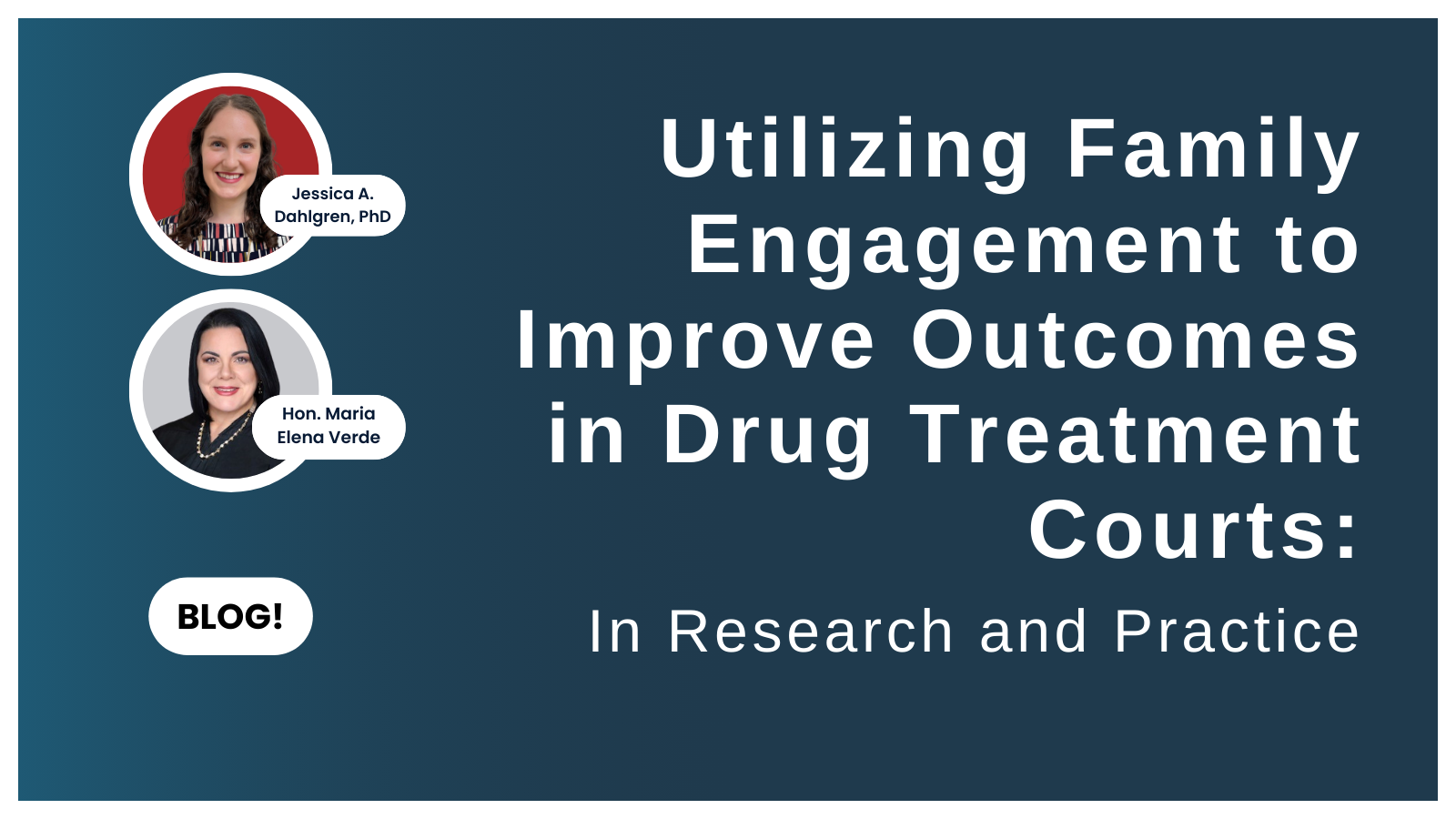Drug treatment courts play a vital role in addressing substance use by offering specialized programs and support. Incorporating family engagement within these courts has the potential to improve outcomes further. In the webinar “Utilizing Family Engagement to Improve Outcomes in Drug Treatment Courts: In Research and Practice,” hosted by SAMHSA’s GAINS Center, experts Dr. Jessica Dahlgren and Judge Maria Elena Verde offered invaluable insights into enhancing drug treatment court outcomes through family engagement. This post highlights the top 10 takeaways from the comprehensive webinar.
- The Impact of Family Engagement: Dr. Dahlgren emphasized the significant role of family engagement in recovery, sharing that a supportive family environment improves therapy attendance, focus on recovery, and self-acceptance and also reduces the likelihood of the individual returning to substance use.
- Importance of Family Systems Theory: Incorporating family systems theory in therapy sessions helps participants understand and address complex family dynamics, which is crucial for effective treatment and recovery.
- Recovery Capital: The concept of recovery capital, as discussed by Dr. Dahlgren, underlines the importance of internal and external resources in sustaining recovery, including family support.
- Tailoring Treatment to Individual Needs: Judge Verde highlighted the need for treatment courts to understand and address the unique experiences, backgrounds, and needs of each participant.
- Comprehensive Assessment and Case Management: Conducting thorough assessments and utilizing case managers to establish rapport with families and participants, as exemplified by Miami-Dade County’s Drug Court Program, was underscored as a best practice.
- Overcoming Barriers to Family Involvement: Addressing potential barriers, such as confidentiality concerns and family conflicts, is essential for effective family engagement in treatment processes.
- The Role of Peer Specialists: The value of employing peer specialists and people with lived experience in the drug court staff was highlighted, illustrating their unique ability to connect with and support participants.
- The Power of Graduation Ceremonies: Celebratory graduation ceremonies in treatment courts were recommended for their positive impact on participants and their families, reinforcing recovery and reconnection.
- Embracing Telehealth and Remote Services: The use of remote services, including telehealth, was praised for increasing access to counseling and support, and was noted as particularly beneficial in areas with logistical challenges.
- Continuous Learning and Application of Best Practices: The webinar stressed the importance of ongoing training and adherence to best practices for professionals involved in treatment courts.
The webinar presented a compelling case for the integration of family engagement in drug treatment court settings. This approach not only supports the success of participants but also fosters a holistic healing environment for their families. We encourage you to watch the full webinar to gain deeper insights into how these practices can be implemented and to stay informed about the latest research and practical applications in the field.
This blog post was developed with the assistance of generative artificial intelligence.


